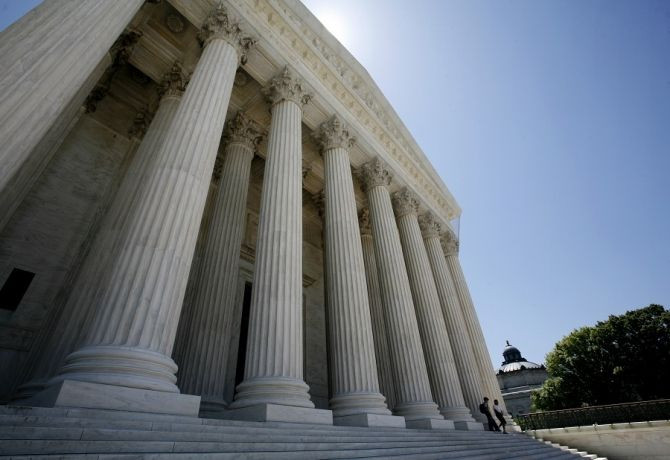U.S. Supreme Court to Hear Obama Health Law Case

The U.S. Supreme Court on Monday agreed to hear during its current term a case testing the legality of the 2010 health care law which has ignited a power struggle between the states and federal government.
Attorneys from the states and a small business group, as well as the Obama administration, asked the Court to hear the case just ahead of the start of their 2011-2012 term in late September.
The court’s ruling may have some influence in an election year when the struggling economy and what to do about it will be a main issue.
The law, passed in March of last year aims at closing the health coverage gap in the U.S. by insuring nearly every one of the 30 million people, or 15 percent of the country, who don’t have health insurance by requiring that each person buy insurance starting in 2014.
The law includes subsidies for those who can’t afford it, raising the ire of Republicans in Congress who aim for a smaller federal government.
The law passed in an acrimonious way, along sharply partisan lines. It has faced the threat of legal challenges even before it was signed into law by President Obama in March of 2010.
The central question, according to both the states and federal government, surrounds that the so-called individual mandate at the law’s center.
A federal court in Atlanta has ruled that the core of the law violated the Constitution, although it kept the rest of the law in effect.
In September, twenty-six states and National Federation of Independent Businesses asked the court to determine if the entire law should be blocked, not only the core requirement to purchase insurance.
The Department of Health and Human Services, which is working to implement the law, filed to have the case heard immediately after the states made their request.
“[D]espite the fact that the mandate is a ‘requirement’ that Congress itself deemed ‘essential’ to the Act’s new insurance regulations … the Eleventh Circuit held that the mandate is severable from the remainder of the Act,” the States and NFIB wrote in their petition.
“The question presented is whether the ACA (Affordable Care Act) must be invalidated in its entirety because it is non-severable from the individual mandate that exceeds Congress’ limited and enumerated powers under the Constitution.”



























